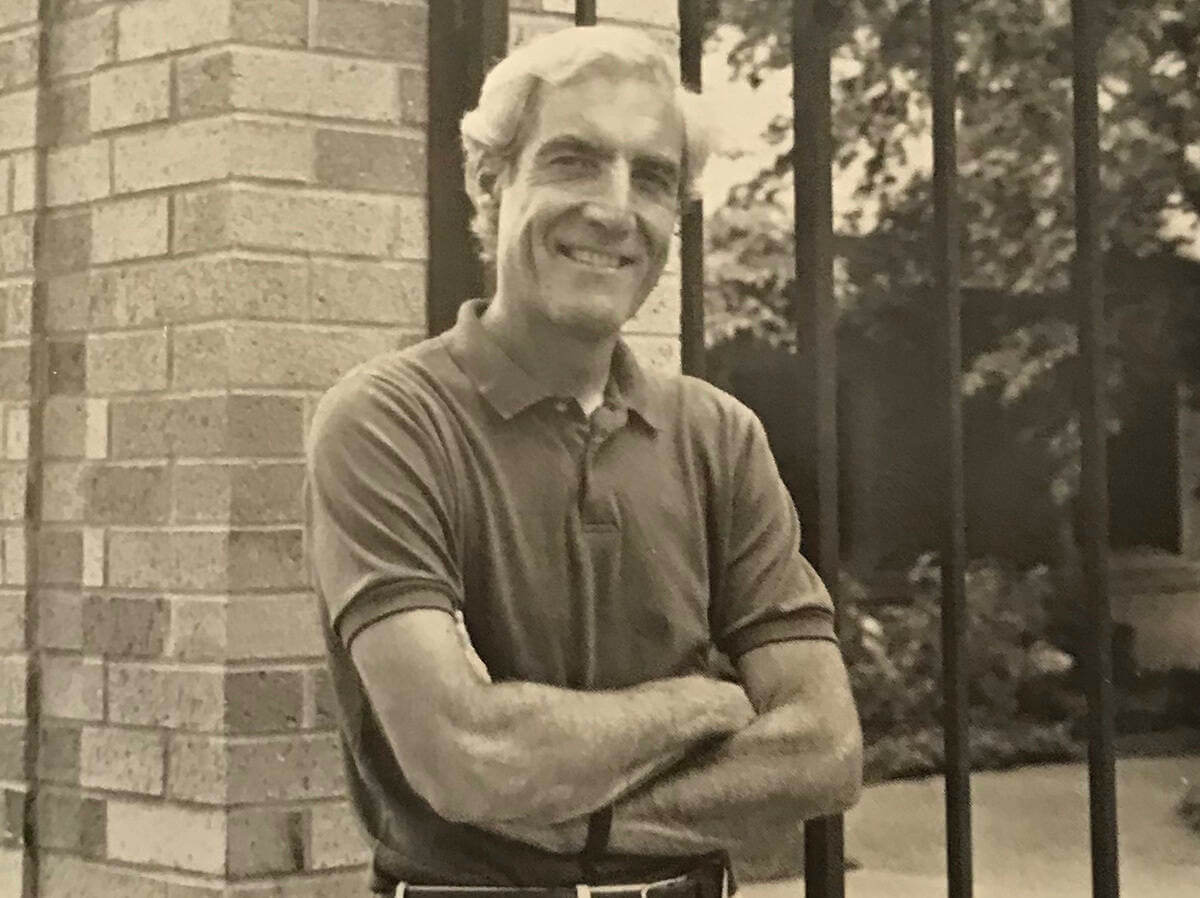Jocular repetition transformed the story into a campus legend.
Notre Dame President Rev. Theodore M. Hesburgh, C.S.C., was displeased at the preponderance of starting football players, introduced on a TV broadcast in the 1960s, as majors in a certain subject: Communication Arts. Maybe it was time, in his view, to elevate the academic rigor of what was then popularly known as “CA.”
That task of elevation, of figuring out a new curriculum for a new major, fell primarily to Ronald Weber ’57, a faculty member since 1963. With characteristic creativity and common sense, he proposed merging classes in the techniques of communications with substantive examination of literature, history, arts and culture. Thus was born, in 1970, American studies at Notre Dame as a distinctive academic entity.
Weber, who passed away March 12 at age 89, chaired the fledgling enterprise for seven years. What started as a novel “program” quickly evolved into a standalone department in the College of Arts and Letters.
In planning courses, Weber said it was important to consider America from different vantage points, to use an interdisciplinary approach and to probe — in his word — the “interstices” of traditional academic pursuits in original ways. Try to fill in the scholarly gaps, he advised, with imaginative and pertinent undergraduate offerings.
Faculty members in American studies were expected to be different from colleagues in other departments focusing on the humanities, social sciences and the arts. Singularity in dealing with subject matter became the curriculum’s North Star — along with a commitment to clear, direct written or spoken expression.
Once the foundation was set, Weber returned to his two work-life loves: teaching and writing. He’d tell nervous, newly-hired assistant professors that their main obligation was “bringing to life” whatever they were discussing, something he did each time he entered a classroom.
Most teachers aren’t aware or don’t know if they’re connecting with students. Weber was different. You’d often hear about his classes, what he said, how he handled a Hemingway novel or a Tom Wolfe article. He knew.

One of his students, Ann Therese Palmer ’73, ’75MBA contributed an article to the Chicago Tribune in 2005 about Weber’s meaning as a teacher and mentor. She recalled how he “always had time to talk,” helping her “realize the beauty and meaning of the American literature he assigned.” He also devoted hours “outside class marking up my papers so I’d become a more clear, more imaginative writer.”
Palmer, who also received a law degree from Loyola University Chicago, became a freelance writer and in 2007 edited the book, Thanking Father Ted: Thirty-Five Years of Notre Dame Coeducation.
Tom Bettag ’66, another former student, recalled that Weber “wasn’t just a professor, he was a teacher. I was an introverted kid from rural Michigan for whom Notre Dame was a stretch. Ron made it clear that I counted. He valued the thoughts that I put into writing for his class. He praised what was good. Only rarely did he criticize the bad, saying, ‘You are better than that.’ I had never had anyone make me feel quite that way.”
After earning a master’s degree at Columbia University, Bettag went into broadcast journalism, with stints as the executive producer of the CBS Evening News and the ABC News program Nightline. Along the way, he won 30 Emmy awards, two Peabody awards, six duPont silver batons and the Fred Friendly First Amendment Award — all the while looking back fondly at a particular “teacher.”
Throughout his life, Weber cared deeply about the written word, whether by well-known authors or his own prose. In a review of one of his books, Publishers Weekly called him “one of the finest writers on writers” engaged in literary analysis.
His output was prodigious, beginning in 1980 with The Literature of Fact, followed not long afterwards by Seeing Earth: Literary Responses to Space Exploration, Hemingway’s Art of Nonfiction, The Midwestern Ascendancy in American Writing and Hired Pens: Professional Writers in America’s Golden Age of Print.
Weber’s own writing took a decided turn in 1986 with the publication of his first novel, Company Spook, a mystery with strong echoes of the Watergate affair. A spy thriller, Troubleshooter, came out two years later.
After the lull of a decade, five mysteries with fly-fishing themes appeared in succession over the next several years, most composed after he retired from teaching in 1999. These works reflected two of Weber’s passions: angling up in Michigan and enjoying the process of creating well-told stories.
Besides the writerly fun of mystery-making, Weber continued to explore historical and cultural topics that fascinated him. News of Paris: American Journalists in the City of Light Between the Wars was published in 2006, prompting a reviewer in The New York Times to describe it as “an old war chest full of stories about this intoxicating period in journalism.” Five years later, another revealing account — this one much less zany and entertaining — came out: The Lisbon Route: Entry and Escape in Nazi Europe.
In all, besides being a prize-winning teacher and the recipient of Notre Dame’s Faculty Award in 1976, Weber wrote or edited 19 books.
During his 36 years of faculty service and later in his busy emeritus retirement, Ron Weber displayed a mastery of talents one rarely sees in a single person. In the classroom, at the computer keyboard or chatting among colleagues and students, he was very much at home and in modest command because he was so smart. What’s more, he inspired and guided into being a new academic department that flourishes today.
Rare talents, indeed.
Bob Schmuhl, the Walter H. Annenberg-Edmund P. Joyce Professor Emeritus of American Studies and Journalism, joined the Notre Dame faculty in 1980 and served four different times as chair of American studies. Among his books is Fifty Years with Father Hesburgh: On and Off the Record, published by Notre Dame Press.